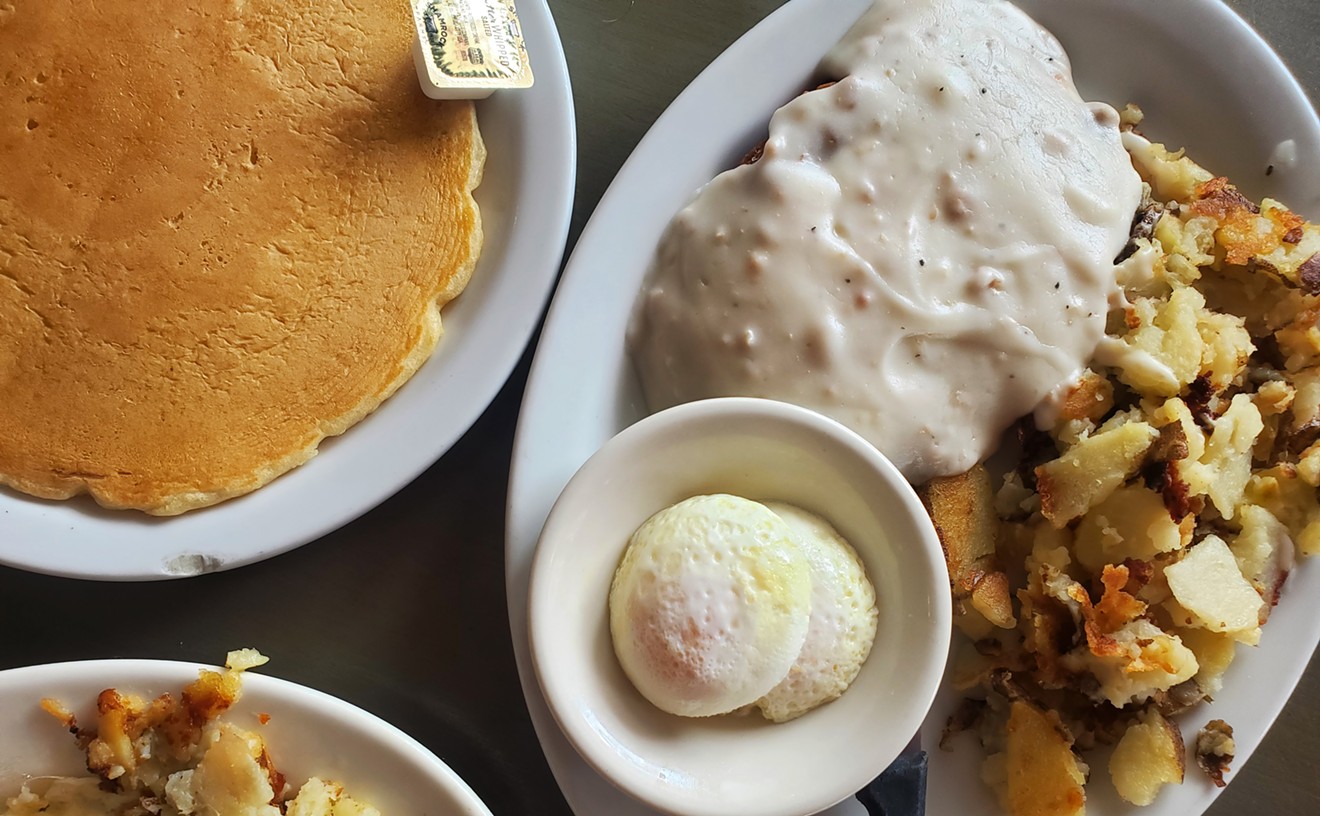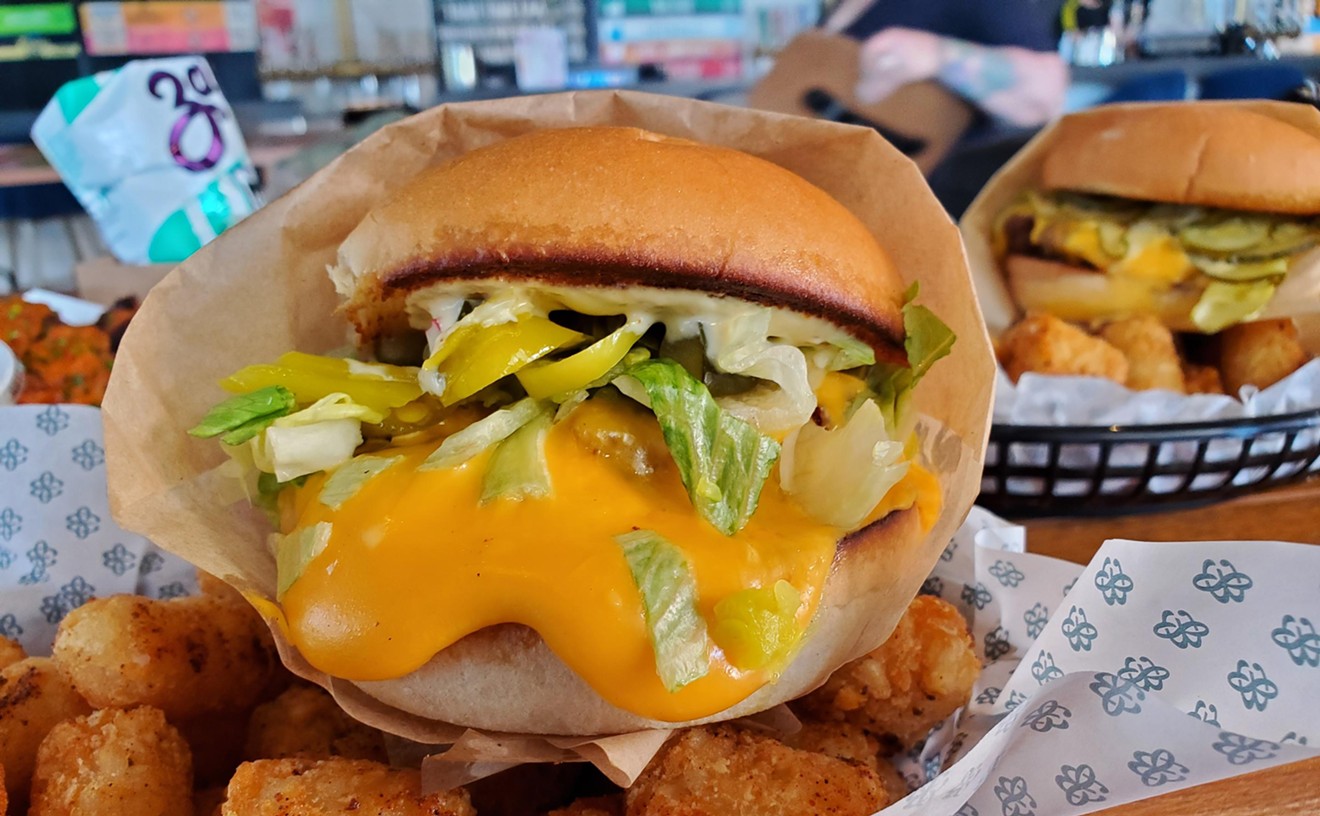Denver seems to have a love-hate relationship with Middle Eastern cuisine, stemming in part from confusion over the term “Middle Eastern” itself. This nebulous geopolitical label has little to do with the borderless culinary world, where dishes transform and evolve over generations and from region to region. Here in Denver, though, “Middle Eastern” has become a handy tag for a very specific set of dishes, regardless of the nationality or ethnic heritage of the folks making them in the kitchen. And restaurant owners, needing to make a buck, capitulate to the demands of customers, who want their falafel, hummus and shawarma and steer clear of anything with an unfamiliar name or quirky ingredient. As a result, the “Middle Eastern” food served in this city becomes more and more boring — and then restaurant-goers complain that the food scene sucks.
This phenomenon is by no means isolated to Middle Eastern cuisine, which sometimes goes by the marginally more helpful “Mediterranean” (a label more geo- and less -political). But a recent experience at a Lebanese specialist highlighted the problem. I was searching for variations on quail and came across an online menu featuring the tiny, delicious fowl as an appetizer, but when I arrived at the busy restaurant, I was told that the kitchen was out. I settled on baba ghanouj and falafel, the former offering only bland creaminess and the latter missing even the barest hint of a key ingredient: salt. Maybe that quail would have suffered a similar fate, but I couldn’t help thinking that the reason the bird was out of stock was because people never order it, and so something that was once a house specialty had fallen by the wayside because guests were instead downing order after order of mediocre falafel. (The place was anything but slow.)
We’re losing diversity, originality and culinary history in favor of comfort. We turn again and again to the dishes we’re familiar with, and we expect those dishes to conform to a single ideal: one that comes from a childhood memory, a vacation experience or some other revelatory encounter. But in doing so, we miss out on the edible treasure that may be lurking on page two of the menu or on a daily specials board — or we just skip it because we’ve never heard of it before.
I, too, lunge at the comforting and familiar like a dog at a mailman, but one of my goals with Ethniche has been to help make the unfamiliar more familiar. So when I spot a plate or an ingredient that I’ve never seen on a menu, I order it. When an entire menu is peppered with the uncommon or unknown, I ask questions. And when I’m combing the Internet for a specific dish and come across a menu that’s entirely new to me, I drop everything and hop in my car. That’s how I recently wound up at Afia Grill, tucked into a shopping center at the corner of Havana Street and East Iliff Avenue in Aurora.
Bokhari, qoozi, mensef, kabsa and mendi: These are not part of the familiar canon of Middle Eastern cuisine you find in this city. Yes, Afia’s roster includes shawarma, kabobs and falafel, but stewed okra and puffy, deep-fried nuggets called koba also appear. The wall menu above the order counter has a picture with each item, so chicken, beef and lamb are discernible where not specifically labeled, and rices stained saffron yellow or burnt orange give some indication as to variations in flavor.
I asked the clerk behind the counter where the owners were from. Iraq, he said, pointing to a few dishes that were specifically Iraqi, including lamb-based qoozi and chicken-based bokhari. So I quickly ordered those two, getting them to go because the clerk also told me it was too much food for one person. While I waited for my order, I studied other dishes on the menu, many of which had their origins in Yemen and Saudi Arabia, with a few coming from Jordan; the more familiar can be found throughout North Africa, the Levant, Turkey and Iran, but they differ in the types of spices and ingredients used. There’s even a rice dish on the menu called beriani, which bears more than a passing resemblance to the similarly named biryani from India.
I spotted something called mensef, with a creamy sauce made from jameed (a kind of hard yogurt cheese) that looked particularly intriguing, but I was told the kitchen was out of this dish. So I paid for my two items and was soon sampling them in the midst of an aromatic cloud of roasted meats, cinnamon and other spices.
The bokhari was a mound of spicy, tomato-tinged rice topped with half a chicken (a very small one) that had been glazed with a dark, sweetish mixture and roasted to a mahogany hue. A few fried potato cubes, some fresh parsley and slices of raw onion surrounded the chicken; a scattering of short, fried noodles — more chewy than crunchy — covered everything. Closer inspection revealed that the noodles were coated in a spice blend — the source of the scent of cinnamon. Although the chicken meat was a little dry, the flavors of the rice, noodles and crispy skin came together to form something at once familiar and unique: mild tanginess, possibly from pomegranate; roasty spices (cumin, cardamom?); and slow-cooked tomato in the rice.
The lamb qoozi was the milder of the two dishes, with stewed chunks of lamb on the bone served on yellow rice tasting of butter and chicken broth. The lamb itself didn’t hold much flavor, but more of those aromatic noodles were sprinkled over this dish, too, and a few plump raisins had also found their way aboard.
Afia doesn’t specifically advertise itself as Iraqi, and remnants of the space’s previous tenant, Tarboosh Mediterranean Grill, can still be seen in some of the signage. If you’re looking for a taste of something new without committing to a complete dinner, Afia also offers mix-and-match bowls for $6.99, which allows you to top rice with meat (beef, lamb, chicken or tilapia) and a variety of sides like okra, stuffed grape leaves, hummus, kidney beans or fatoush. Pita-wrapped sandwiches are only $4.99, and mixed platters of kabobs can be had for just under $10. But I’ll be calling ahead to find out if the mensef is back — because when someone says “jameed,” I don’t say, “What?”
I say, “When?”
[
{
"name": "Air - MediumRectangle - Inline Content - Mobile Display Size",
"component": "12017618",
"insertPoint": "2",
"requiredCountToDisplay": "2",
"watchElement": ".fdn-content-body",
"astAdList": [
{
"adType": "rectangle",
"displayTargets": "mobile"
}
]
},{
"name": "Editor Picks",
"component": "17242653",
"insertPoint": "4",
"requiredCountToDisplay": "1",
"watchElement": ".fdn-content-body",
"astAdList": [
{
"adType": "rectangle",
"displayTargets": "desktop|tablet"
},{
"adType": "rectangle",
"displayTargets": "desktop|tablet|mobile"
}
]
},{
"name": "Inline Links",
"component": "18838239",
"insertPoint": "8th",
"startingPoint": 8,
"requiredCountToDisplay": "7",
"maxInsertions": 25
},{
"name": "Air - MediumRectangle - Combo - Inline Content",
"component": "17261320",
"insertPoint": "8th",
"startingPoint": 8,
"requiredCountToDisplay": "7",
"maxInsertions": 25,
"watchElement": ".fdn-content-body",
"astAdList": [
{
"adType": "rectangle",
"displayTargets": "desktop|tablet"
},{
"adType": "rectangle",
"displayTargets": "desktop|tablet|mobile"
}
]
},{
"name": "Inline Links",
"component": "18838239",
"insertPoint": "8th",
"startingPoint": 12,
"requiredCountToDisplay": "11",
"maxInsertions": 25
},{
"name": "Air - Leaderboard Tower - Combo - Inline Content",
"component": "17261321",
"insertPoint": "8th",
"startingPoint": 12,
"requiredCountToDisplay": "11",
"maxInsertions": 25,
"watchElement": ".fdn-content-body",
"astAdList": [
{
"adType": "leaderboardInlineContent",
"displayTargets": "desktop|tablet"
},{
"adType": "tower",
"displayTargets": "mobile"
}
]
}
]











